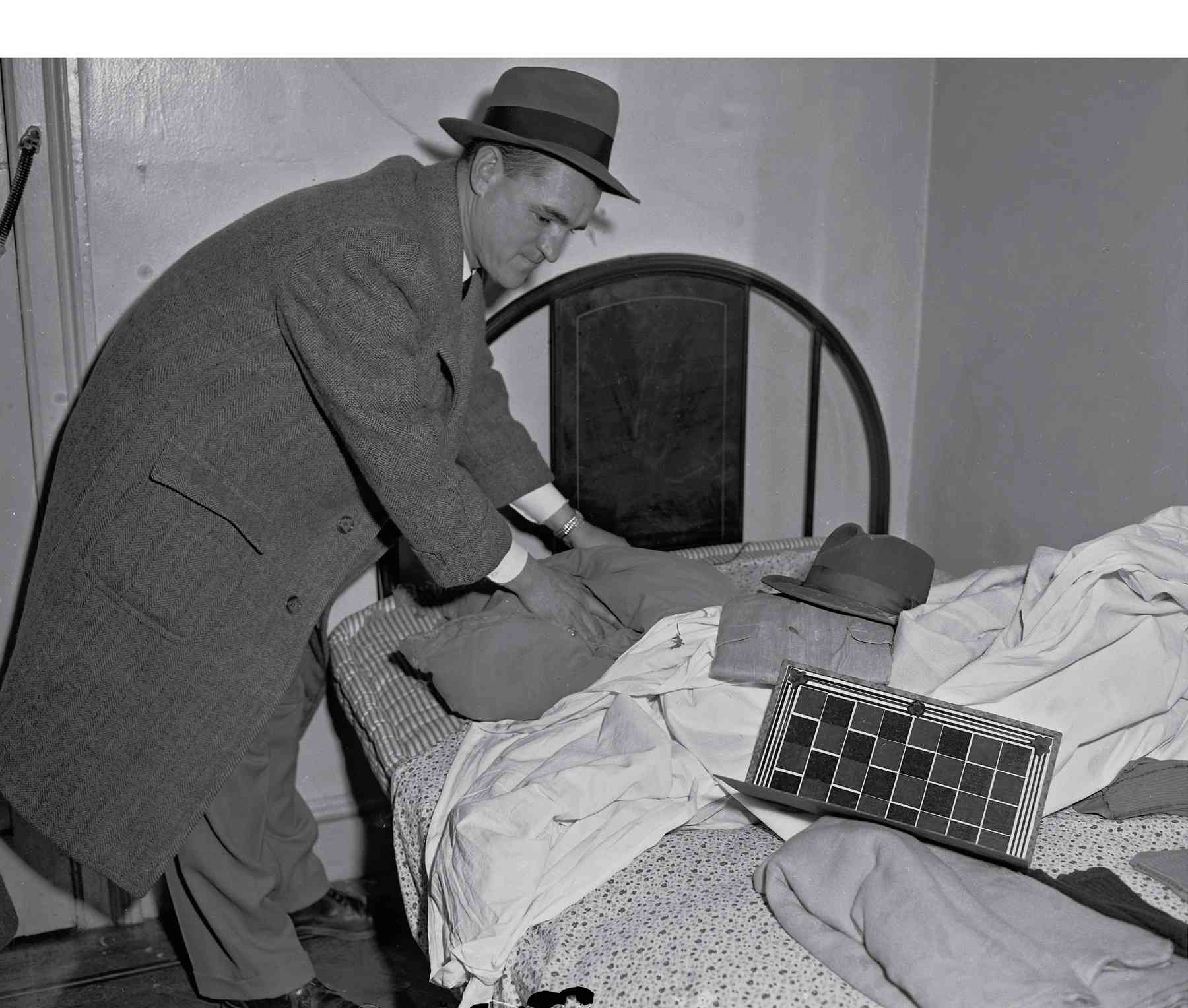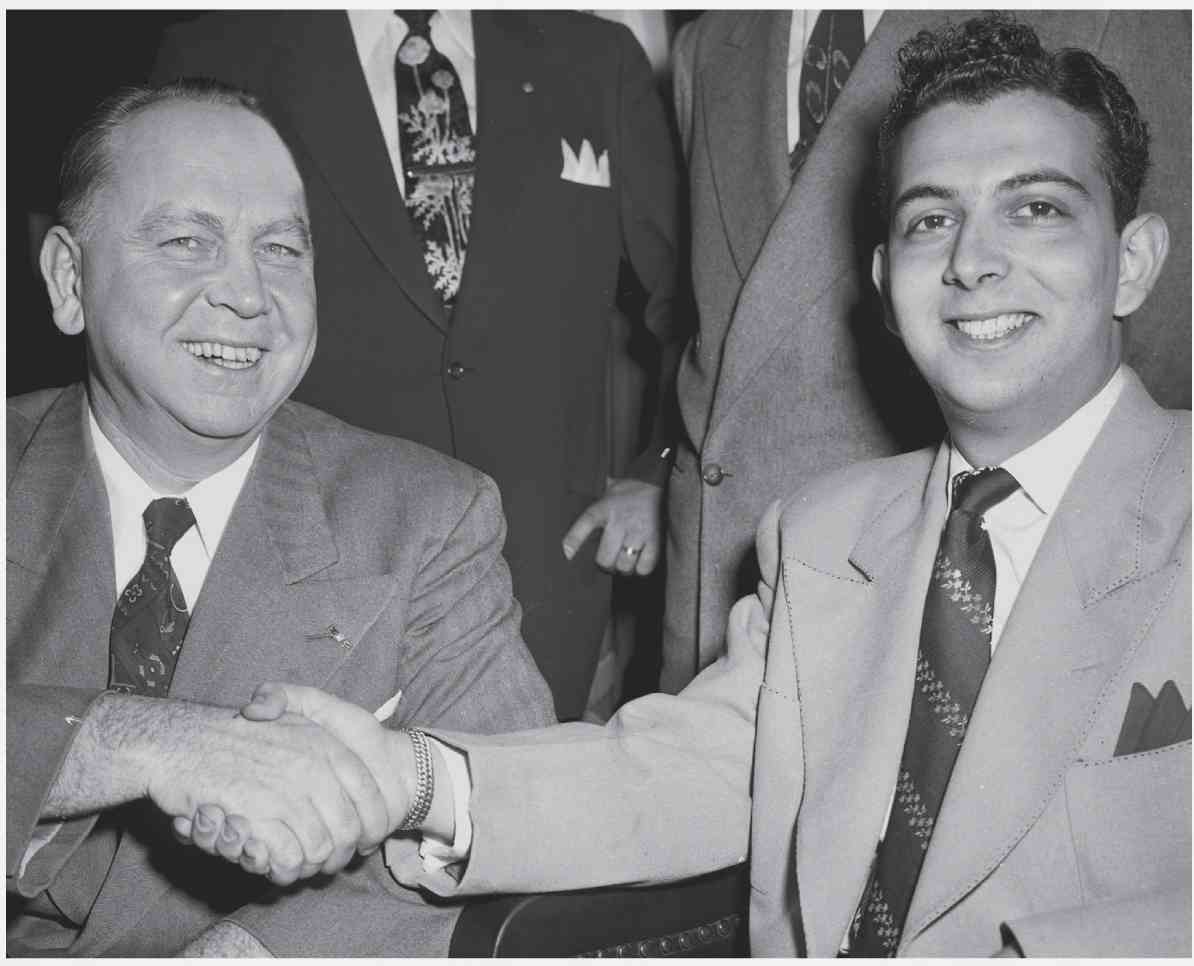William Francis Sutton Jr., better known as Willie, was born in Brooklyn in 1901. Although he did not attend school after the eighth grade, he was considered by authorities to be a criminal mastermind. Over a twenty-five-year period, it is estimated that he made off with $2 million from forty different banks. Despite the fact that he always carried a gun during his holdups, Sutton attributed his success more to his vast array of disguises. At one time or another he masqueraded as a police officer, a mailman, a maintenance worker, and a telegraph messenger. As a result Sutton was considered a gentleman bandit and nicknamed “the Actor” and “Slick Willie” by both the authorities and his criminal counterparts.
While his reputation as an innovative robber is indisputable, Sutton was also a prolific escape artist who broke out of prison three times. His methods for escape, much like his robberies, often relied on disguises. During one particularly brazen escape from a Pennsylvania penitentiary in February 1947, Sutton and several other inmates dressed up as guards and carried ladders to the prison wall. When the searchlights from the watchtower shined down on him, he yelled back to the guards, “It’s okay,” before climbing over the wall to freedom.
Three years later, in March 1950, Sutton found himself one of the FBI’s Ten Most Wanted, just a week after J. Edgar Hoover created the list for publicity purposes. Even with his face on display at post offices throughout the country, Sutton still managed to elude authorities for two more years.
Over a twenty-five-year period, it is estimated that he made off with $2 million from forty different banks.
New York cops had been carrying tattered copies of his wanted flyer in their memo books ever since his escape from the Pennsylvania prison; however, it was an eagle-eyed citizen who helped nab him. Arnold Schuster, a twenty-four-year-old clothing salesman from Brooklyn, observed a man he believed to be the notorious Willie Sutton and reported his sighting to Patrolmen Donald Shea and Joseph McClellan of the Sixty-Sixth Precinct. He told the officers that he had followed Sutton to a gas station. There the attendant told the officers that he had just sold a car battery to the same man and that he had last seen him walking up Dean Street. Sure enough, the patrolmen spotted the well-dressed man Schuster described toiling under the hood of a 1951 Chevrolet. They asked him for identification. He very politely identified himself as Charles Gordon and pointed to a nearby house where he said he resided.
“He was a very cool guy, very calm,” recalled police officer Shea in a 2012 interview with the New York Post.
Although Shea carried a flyer with Sutton’s face in his memo book, the picture had faded too much over the years for him to make a positive identification from it. While his partner waited with the man, Shea returned to the Sixty-Sixth Precinct and got Detective Louis Weiner. The two cops returned to Dean Street and after a few more questions asked Mr. Gordon to accompany them to the stationhouse.
Police Commissioner George Monaghan congratulates the eagle-eyed, 24-year-old Arnold Schuster for providing the tip that led to the capture of the elusive Willie Sutton.
“Sure,” Gordon said obligingly.
Back at the precinct, the man answered all their questions, until the police said they had to fingerprint him. That’s when he shrugged and told them, “Okay, you got me. I’m Willie Sutton.”
During the arrest processing, Sutton feigned embarrassment when told that he had to be strip-searched. “Now, come on,” he said in an effort to discourage the officers from doing their duty. He had a good reason to do so, as there was a handgun secured between his legs by a woman’s sanitary belt.
After the arrest Police Commissioner George Monaghan came to to the precinct, where he unabashedly hugged the three cops and promoted them on the spot to the rank of detective first grade. For Shea and McClellan that amounted to a $1,100 raise.
Arnold Schuster was not nearly as fortunate. His fame was very short-lived—just seventeen days, in fact. After boasting on television about his role in Sutton’s capture, Schuster was gunned down outside his Brooklyn home. Sutton was never implicated in the killing. While the homicide was never officially solved, it was widely believed to have been committed on the orders of Albert Anastasia, the boss of the Gambino crime family, because he detested squealers.
Sutton was convicted of robbing a bank in Sunnyside, Queens, during the time he was on the lam and received a sentence of up to 120 years in prison. Although it has been widely reported that Sutton said that he robbed banks “because that’s where the money is,” he always maintained that it was a newspaper reporter who actually mouthed the words long attributed to him.

Detectives searched Willie Sutton’s furnished rented room and recovered $2,955 in cash and a loaded revolver.
